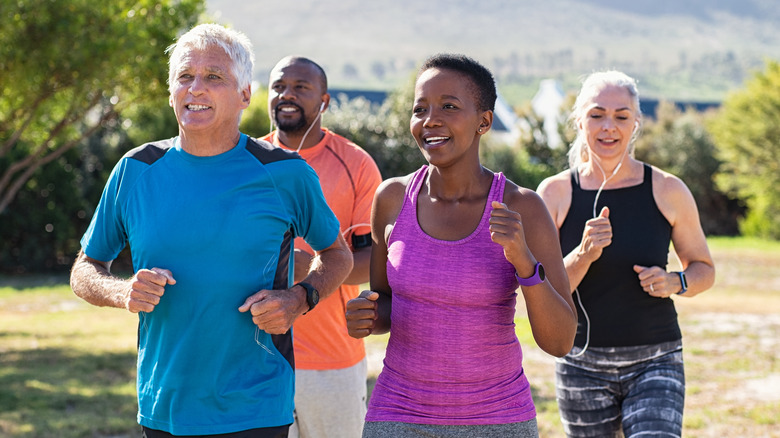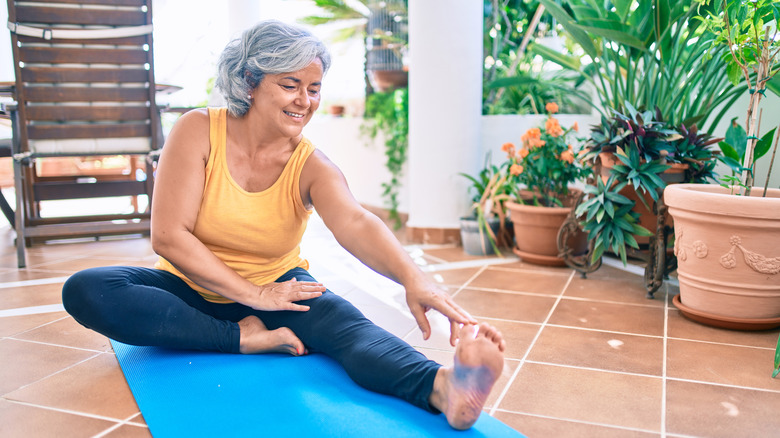The Real Reason Muscle Recovery Gets Harder With Age
As much as we might try to slow down aging with exercise, eventually, we're bound to notice that the workout we're doing at 50 or 60 wears us out more quickly than it did at 25. Post-workout muscle recovery is a process that takes time at any age, but it becomes harder and takes longer for older adults than for younger ones — and that's okay. As our bodies change with age, our workouts should adapt to the changes, too. Aaptiv Fitness Trainer Jess Ray says, "Our bodies were made to move. As we age, it's important to keep moving so [that] we stay mobile, flexible, and strong" (via Aaptiv).
During a workout, energy stores (in the form of glycogen) are depleted, and muscle proteins are damaged (via Livestrong). Post-workout muscle recovery — or the time it takes for your muscles to lose their soreness and tiredness so that you're ready to workout again — takes longer for older adults partly because they actually have fewer and smaller muscle fibers than they did in their 20s and 30s.
Ellen Anderson, PT, Ph.D., associate professor in the department of rehabilitation and movement sciences at Rutgers School of Health Professions, explains, "During the aging process, we are losing the size of the muscle fibers, as well as the number of muscle fibers [also known as sarcopenia]." Not only that, but the body's connective tissues (like ligaments, blood vessels, and tendons) also weaken with age, reducing blood flow to the muscles and slowing the healing process.
Stretching after a workout can help minimize stiffness
Thankfully, there are simple steps we can take to help promote post-workout muscle repair, at any age. Eating a healthy snack that includes a fruit carbohydrate and a protein (like greek yogurt with berries, or an apple with peanut butter) after exercising can help spur muscle repair. Staying hydrated (throughout the day, not just post-workout!) is essential for maintaining blood volume and good digestion. And gentle stretching soon after a workout, while your muscles and tendons are still warm, can help minimize stiffness (via Livestrong). Also, giving yourself regular "off" days to rest and recover can help ensure you don't risk overdoing it.
Finally, don't underestimate the importance of a healthy, nutrient-rich diet and plenty of sleep. As Healthline points out, no supplement or gadget can make up for a poor diet or sleep deficiency. By making some simple adjustments to our workout and recovery routines as we age, we can continue to enjoy the benefits of fitness well into the golden years.


